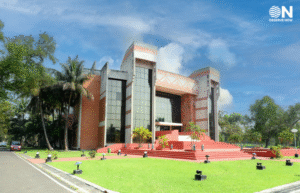CrowdStrike appoints Kartik Shahani as Vice President of India and SAARC
CrowdStrike has announced the appointment of Kartik Shahani as Vice President for India and SAARC. In this role, Shahani will spearhead CrowdStrike’s regional go-to-market strategy to drive growth and increase customer adoption of the CrowdStrike Falcon® cybersecurity platform. With over 30 years of experience in IT and cybersecurity, Shahani is a seasoned leader known for successfully managing sales operations, formulating growth strategies, and enhancing profitability.
Prior to joining CrowdStrike, he was the Managing Director for India/SAARC at Tenable, where he played a key role in driving regional growth, securing customers across major BFSI sectors, and improving renewal rates. Shahani has also led regional sales efforts for prominent technology and cybersecurity firms like Dell EMC, IBM, and McAfee.
“We are excited to have Kartik on board and look forward to accelerating our growth in India and SAARC with his expertise,” said Geoff Swaine, Vice President of APJ Sales at CrowdStrike. “India and SAARC are vital markets for us as we expand globally, tapping into exceptional talent and connecting with customers throughout APJ. Under Kartik’s leadership, our team in India will continue to deliver the innovation and platform capabilities that our customers need to prevent breaches.”
Expressing his enthusiasm, Shahani said, “I am thrilled to join CrowdStrike to lead the India and SAARC business. I look forward to enhancing our regional presence and enabling both current and potential customers to harness the power of the CrowdStrike Falcon platform to thwart adversaries.”
Shahani’s appointment comes at a time when CrowdStrike is making significant investments in the region, highlighted by the opening of a new, state-of-the-art, 52,000-square-foot office in Pune earlier this year.




















